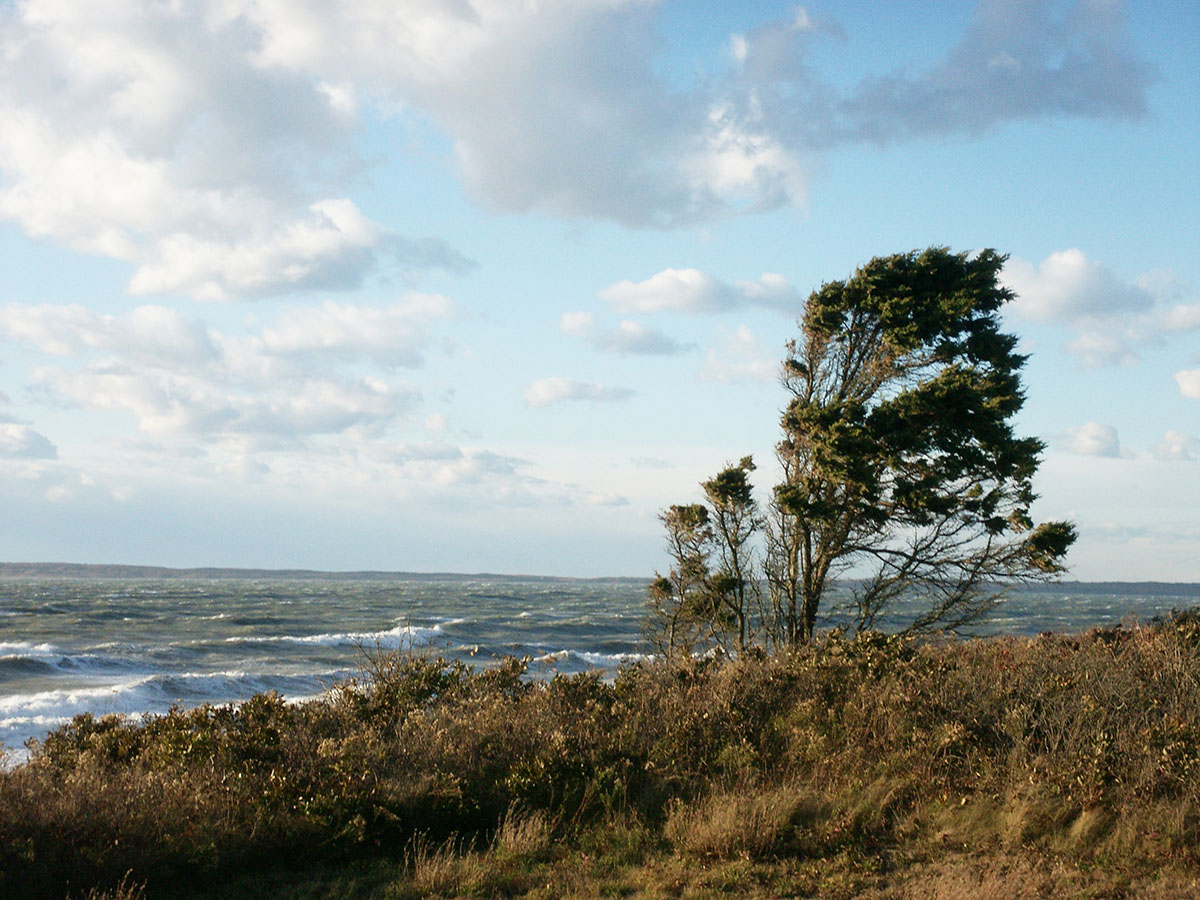
Legal Defense
Environmental legal defense is a necessary part of the Vineyard Conservation Society’s mission. For more than two decades, VCS has fought to defend the coastal heathlands of Moshup Trail in Aquinnah against developers intent on building a subdivision access road through this fragile and rare resource. These wild moors have been eradicated in more than 90% of their historical range, due largely to land development. The primary threat to heathland habitat is “fragmentation” in the form of road building and house construction.
Launched with a $500,000 state grant and supported by private foundations and public donations, more than 40 acres have been conserved at a cost of nearly $3 million. In 2013, the Kennedy (Red Gate Farm) gift added several key parcels to the Moshup Sanctuary. The fate of several parcels of conservation interest remains unsettled, pending the outcome of title work and litigation involving access to these lands.
The protracted litigation involved owners of landlocked parcels who sought to force access for development purposes by building roads through the conservation land, arguing that they had the right to do so. VCS took the position that no “implied easement” or “easement by necessity” exists over our land, and that such development would fragment the habitat and erode a conservation foothold won through substantial outlay of public and private dollars.
An original trial court judgment in our favor (2001) was appealed by the parties seeking access. After review by the appeals court, the matter was returned to the lower court in 2005 with instructions to determine whether easements exist over the conservation land: “it is the proponents’ burden to prove the existence of an implied easement. Necessity alone does not an easement create.”
In March, 2011, the trial court ruled again in our favor, finding that no easements exist over the conservation land. Our opponents filed an appeal of the trial court’s decision, resulting in a 2-1 decision by a three-judge panel of the state Court of Appeal that reversed the previous findings, a significant setback for the conservation effort.
We appealed that decision to the state’s Supreme Judicial Court (SJC). Our determination was grounded in the belief that conservation land holders have an obligation to defend the land protection gains made to date. We were also persuaded that the odds were in our favor, based on the record in the case so far, and a strongly worded dissent written by the Hon. Peter W. Agnes, Jr.
Finally, in April, 2016, the SJC found in our favor, a decision that was also quite strongly worded. At the end of that year, the Supreme Court of the United States denied a petition for a writ of certiorari filed by our opponents. While we remain vigilant, that effectively ended the litigation, ensuring that the conservation gains at Moshup Trail will be secure and permanent.
